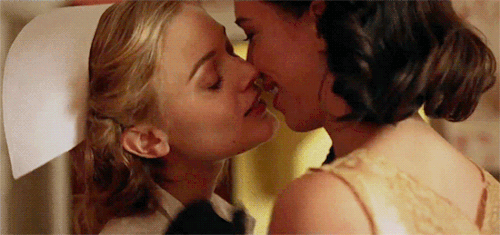Professor Marston and the Wonder Women is a biographical drama that explores the unconventional and groundbreaking relationship between Dr. William Moulton Marston, the creator of Wonder Woman, and the two women who shaped both his life and his iconic character. The film alternates between the 1940s, when Marston is being questioned about the controversial themes in Wonder Woman comics, and the 1920s–30s, when his personal and professional lives were deeply intertwined. William Marston, a psychologist and inventor, is married to Elizabeth Marston, an equally brilliant and assertive woman who is frustrated by society’s limitations on women. Together, they develop the DISC theory of human behavior and work on perfecting the lie detector test. Their lives take a turn when they meet Olive Byrne, a soft-spoken but intelligent student who becomes their research assistant. Over time, their professional relationship transforms into a deep and passionate romantic bond that defies societal norms.
As their connection grows, William, Elizabeth, and Olive enter a polyamorous relationship, despite the risks of being discovered. Elizabeth, initially hesitant, struggles with the implications of loving both Olive and William, but she ultimately cannot deny her feelings. Olive, too, faces her own internal conflicts, knowing that their love exists in a time when such relationships are considered scandalous and immoral. Their love is passionate but also fraught with challenges, especially as they navigate secrecy, jealousy, and societal judgment. Despite this, their bond remains unbreakable, and together they create a household where they raise their children as a family unit. However, the outside world is far less accepting. They face scrutiny from their academic peers and employers, ultimately leading to William losing his position at Harvard and struggling to support his family.

Amidst their personal struggles, William finds inspiration for what would become one of the most iconic comic book characters in history—Wonder Woman. Drawing from Elizabeth’s strength, Olive’s compassion, and his own psychological theories, he crafts a heroine who embodies their ideals of feminism, power, and love. The comic incorporates elements of their personal lives, including themes of submission, dominance, and justice, which reflect both their intimate relationships and Marston’s beliefs about human behavior. As Wonder Woman gains popularity, it also attracts controversy, particularly due to its themes of bondage and female empowerment, which many see as inappropriate for children. William is forced to defend his work before a decency board, where he argues that Wonder Woman is a symbol of liberation, not corruption. However, the backlash grows stronger, threatening both his career and his family’s privacy.
As public pressure mounts, Olive and Elizabeth struggle with the consequences of their unconventional love. Olive, fearing for their children’s future, wants to distance herself, while Elizabeth wrestles with her anger at society’s unwillingness to accept them. William’s health begins to decline, and the family is on the verge of collapse. In a powerful and emotional moment, William pleads with Elizabeth and Olive to stay together, reminding them that their love is worth fighting for. In the end, despite the hardships, the three reconcile, reaffirming their commitment to one another. After William’s death, Elizabeth and Olive remain together for the rest of their lives, proving that their love was not just a fleeting rebellion but a true and lasting bond.

Professor Marston and the Wonder Women is more than just a film about the origins of a comic book character—it is a story about love, courage, and defying societal expectations. The film highlights the struggles of living authentically in a world that demands conformity, while also celebrating the revolutionary spirit that gave birth to Wonder Woman. Through stunning performances, rich storytelling, and a deep exploration of sexuality, feminism, and psychology, the film challenges viewers to rethink their perceptions of love and relationships. In the end, it is a poignant reminder that true love, no matter how unconventional, deserves to be acknowledged and celebrated.





